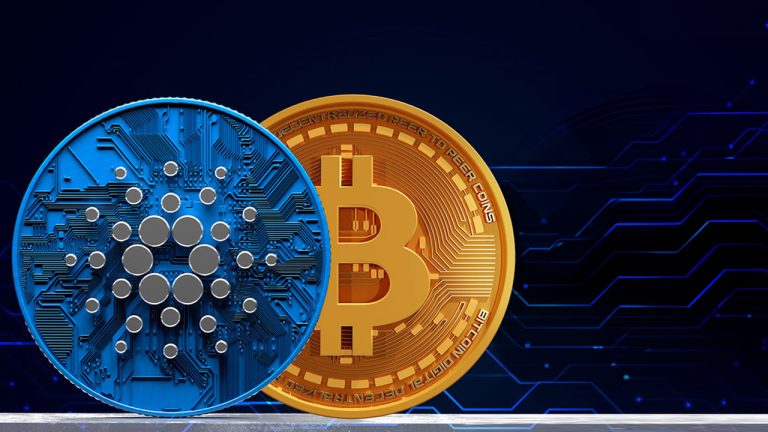
Charles Hoskinson, co-founder of Input Output Global (IOHK) and the Cardano blockchain initiative, recently expressed his frustration in a video over the U.S. regulator’s decision to categorize the cryptocurrency cardano as a security. He’s perplexed and critical about the exemption of bitcoin from being tagged as a security, mocking the situation as a “pathetic joke” and pointing out the apparent free pass granted to “Team Orange.”
Hoskinson Shows Frustration Over ‘Team Orange’ Getting a Pass
In a video clip shared by Altcoin Daily on a social media platform referred to as X, Charles Hoskinson passionately discussed his views on cardano’s (ADA) classification as a security, contrasting it with bitcoin (BTC) and others in the crypto space. He questions the logic, highlighting what he perceives as inconsistencies and unfair treatment in the regulatory approach.
Hoskinson, in the video, questions the absence of expectation of profit among fervent bitcoin supporters, known as the “Orange pill moon boys.” He criticizes the perceived decentralization of Bitcoin, noting that subpoenaing or targeting a few entities could potentially lead to a 51% attack on the network due to the nature of its hashpower distribution. He lambasts this oversight as a glaring, “pathetic f***ing joke.”
Following the video’s release by Altcoin Daily, users of platform X reacted to Hoskinson’s assertions. In a thread on X, Blockstream founder Adam Back responded, tagging Hoskinson. Back simplified the distinction, stating, “[Charles Hoskinson] it’s very simple: Bitcoin did not do an ICO, most people thought it had no value, it was mined from zero, it is decentralised, there is no CEO, ICO warchested ‘foundation,’ incorporation etc. so Cardano, ETH etc clearly pass Howey, Bitcoin is a commodity and does not.”
Responding to Back, Hoskinson clarified that Cardano didn’t have an ICO. Instead, he detailed an airdrop and subsequent trading of ADA by a diverse group of individuals who also used the platform for various projects.
He further elaborated:
A voucher sale of a different asset outside of the United States, priced in Yen, settled in Bitcoin, explained in Japanese to Japanese citizens, and without a single U.S. participant does not constitute an ICO of ADA.
As per Cardano’s Genesis records, these ADA token vouchers were distributed through sales in Asia from October 2015 to early January 2017. A Japanese company facilitated these sales, which garnered 108,844.5 BTC. The debate continued with Back countering Hoskinson’s explanation, suggesting that an airdrop, premine, and some market activity still classify as an ICO. He also pointed to the reliance on a management team for profit expectations.
Hoskinson: ‘I’m Done With Team Orange Lobbying the U.S. Government to Criminalize Everything but Bitcoin’
Hoskinson refuted the notion that an airdrop equates to an initial coin offering (ICO), citing even the SEC’s ambiguity on the matter. He pointed to the SEC’s settlement with EOS and Block.one as a case in point. Hoskinson emphasized that ADA was not publicly offered by a centralized entity, contrasting it with Ethereum’s ICO for ether, which has not been classified as a security.
Expressing his frustration, Hoskinson criticized the bitcoin community for labeling non-Bitcoin projects as inferior or fraudulent. He condemned what he perceived as efforts by Bitcoin advocates to push U.S. authorities to outlaw cryptocurrencies other than Bitcoin. He also dismissed the argument that Bitcoin’s mining process was fundamentally different, noting that Satoshi Nakamoto, Bitcoin’s creator, initially had complete control over the network and remained anonymous due to legal uncertainties.
The Blockstream executive responded by comparing bitcoin with gold and diamonds, arguing that none of these are securities. Despite claims that gold prices are influenced by sovereign entities and diamond prices by companies like Debeers, Back asserted that they, like bitcoin, are commodities. He maintained that ether, ADA, and similar cryptocurrencies are, in contrast, securities. Furthermore, he emphasized that these assets are “both unregistered, and unregisterable securities too.”
What do you think about the debate between Charles Hoskinson and Adam Back? Share your thoughts and opinions about this subject in the comments section below.
















